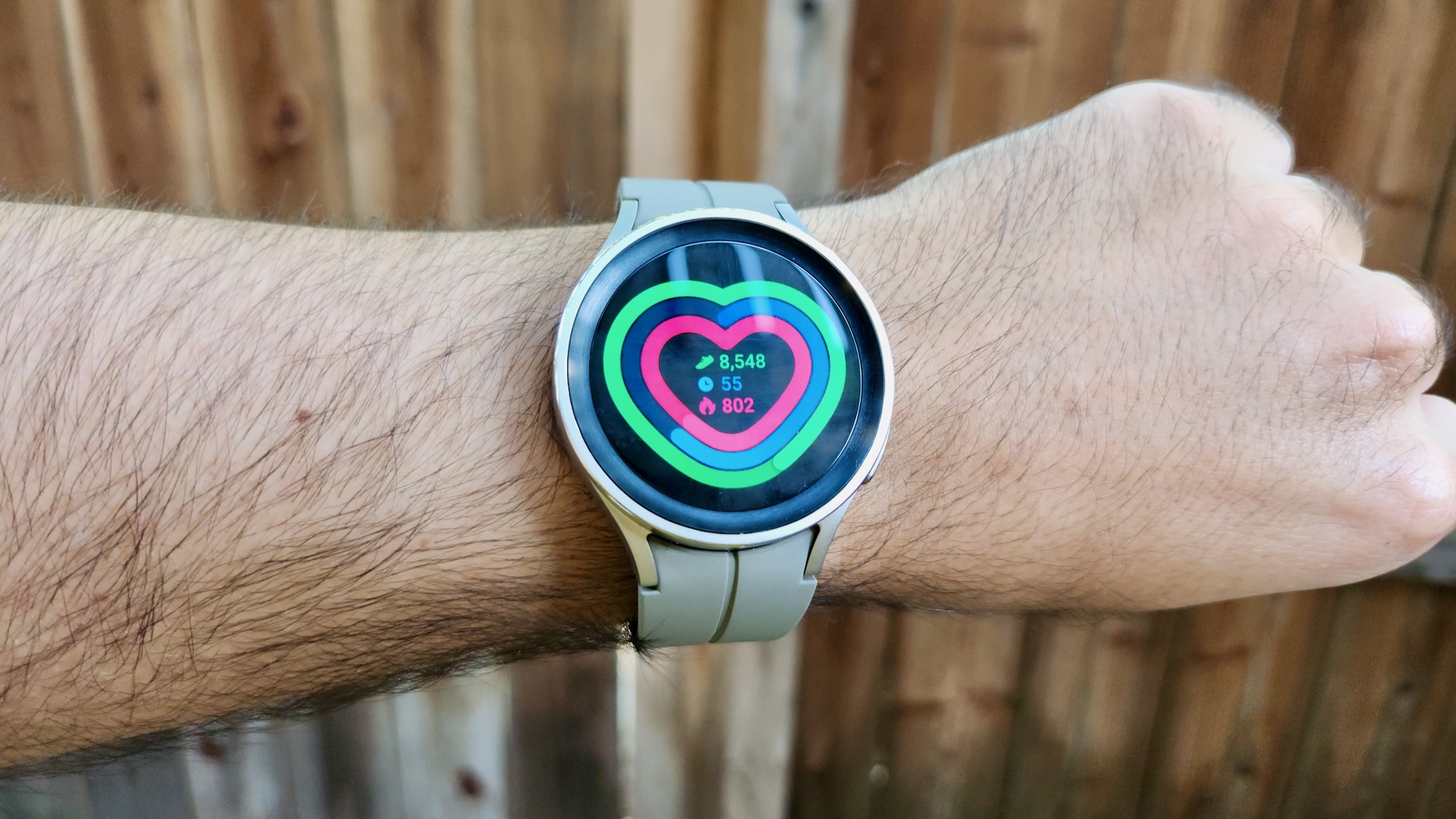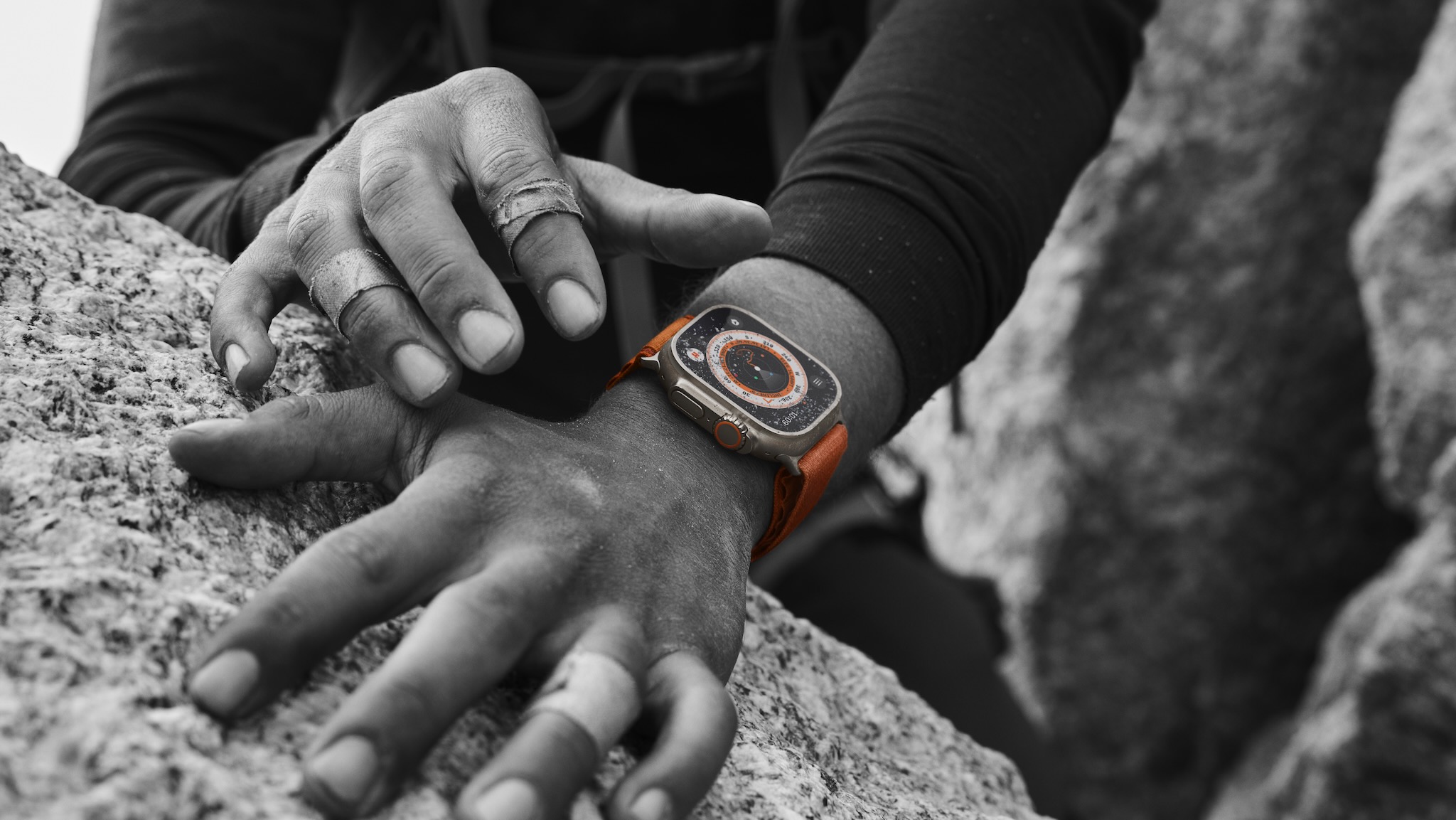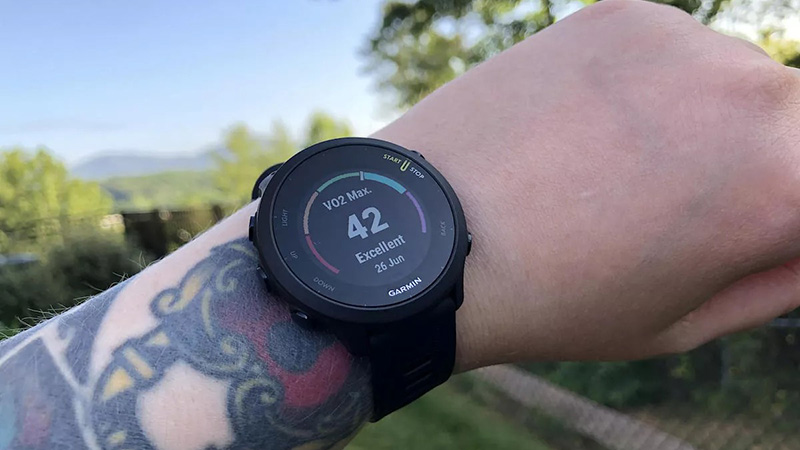Apple Watch Ultra's cool features mask the same issues as the Galaxy Watch 5 Pro
I'll admit the massive watch is seriously tempting, but it isn't the Garmin-killer some tech blogs are claiming.

Apple made waves when it announced the beautifully massive, feature-packed Apple Watch Ultra on Wednesday, and many of our fellow tech sites gave into the hype. The Verge claims the $800 watch could make Garmin as a company obsolete, while Digital Trends put Samsung and the Galaxy Watch 5 Pro on blast, saying Apple gave it a template for a "real adventure smartwatch."
In the face of all this hyperbolic zeal, I want to strike a more nuanced approach here. Because on the one hand, I actually agree that Apple did with the Ultra what I wanted Samsung to do with the Pro in terms of adding more exclusive "rugged" features that cater to outdoorsy folk.
Still, outside of Apple superfans who want the most expensive device in every category, this $800 "adventurer's watch" may not strike a chord with its target audience. Because despite Apple's genuine best efforts, it still has the same core issues as Samsung's Pro watch.
Apple Watch Ultra targets "pros" much better than the Galaxy Watch 5 Pro, but it isn't without its drawbacks.
In my Galaxy Watch 5 Pro review, I complained that Samsung didn't bundle in enough new features that would actually cater to "pros," aside from a three-day battery that falls closer to two with active GPS use. The extra battery is handy but doesn't come close to other fitness smartwatches, and in all other respects, Samsung Health definitely targets more casual athletes than serious ones.
Aside from some GPX maps and a trackback feature, the "Pro" doesn't have any sensors, software, or hardware perks that the more affordable Galaxy Watch 5 doesn't also have, including a 1.4-inch display on the 44mm model.

Compare that to the Apple Watch Ultra. Aside from giving a much more massive display with twice the brightness (2,000 nits) for outdoor visibility, the Apple Watch Ultra gets an extra Action button for shortcuts like instant workout starts, dual-frequency GPS, watch faces showing six metrics at once, custom workouts with a Pacer that keeps you on track, an in-depth Compass app, a Low Power Mode, and a bunch of other perks.
At first glance, the Apple Watch Ultra seemed tailor-made to solve all of my complaints with the Galaxy Watch 5 Pro and to woo serious hikers and athletes.
Get the latest news from Android Central, your trusted companion in the world of Android
Samsung's watch reserves its shortcuts for traditional tools like Google Assistant and Google Wallet, with no extra buttons, and mostly relies on its touchscreen. The Ultra's dedicated button and Digital Crown give you much better tactile controls on the go. Outside of the Coros Pace 2, not enough runners' watches use crowns in my opinion.
Apple's massive square display fits more information as you run, while the Pro makes you swipe to see other data besides your pace and distance.
Custom workouts and dual-frequency GPS make the Apple Watch Ultra worth considering for serious athletes.
Dual-frequency GPS is one of my favorite perks of the Garmin Forerunner 255 and the brand's more expensive models, using multiple satellite signals to pinpoint location and reduce false positives. Garmin also can connect with two GNSS systems at once like GPS and GLONASS, so it may still deliver slightly more accurate results, but not by much.
While the Pro does have Trackback functionality, it's pretty darn basic; you just head out from point A to B, and then get guided back to A. Using the compass on the Apple Watch Ultra, you can place several waypoints with custom icons and guide yourself back to specific points, such as trail markers, instead of all the way back to your car.
Lastly, Apple has put in a heck of a lot more effort catering to runners with watchOS 9, whereas Samsung seems to have given up since its Galaxy Watch 2 Active days. Aside from already measuring Stride Length, Ground Contact Time, Vertical Oscillation, and Running Power, Apple Watches also added Pacer earlier this year: you input a target distance and pace, so you'll receive warnings if you stray too far above or below your target pace — similar to Garmin's Pacepro. Contrast that with Samsung and its Running Coach, which only has a few set paces and distances for walking, jogging, and running that you can't alter.

So yes, even though I consider the Galaxy Watch 5 Pro the second-best Android smartwatch behind the base Galaxy Watch 5, the Apple Watch Ultra looks far superior as an adventurer's watch — as it should be, given it'll cost a whopping $350 more.
But despite the fact that my mouth started metaphorically salivating during the Ultra livestream reveal, it was my time with the Galaxy Watch 5 Pro that brought me back down to Earth.
Your Apple Watch or Galaxy Watch will encourage you to stand up and stretch when you're idle too long, and to close your daily activity rings. And Apple/Samsung Health will tell you how well you're sleeping, calories burned, and even niche running data like your form quality. But what it won't do is tell you what to do with that data.

The biggest perk of any Garmin watch or a Fitbit with Premium is that it'll give you guided coaching or recommended daily runs based on your current VO2 Max and past workout data. If you run a marathon, you'll get immediate feedback telling you to take it easy for a week. But with the Apple Watch Ultra or GW5 Pro, it'll tell you the next day to get off your lazy butt and close those rings! It doesn't have the same contextual information to warn you if you're overtraining, as Garmin would based on your Body Battery score.
It's possible Apple will push its own internal algorithms to be able to deliver this information. But I wonder whether or not that data will end up locked behind an Apple Fitness+ paywall, similar to Fitbit Premium data. Right now, all of its data is totally free, but if it decided to start "coaching" runners with data, I could see Apple deciding to bundle in that coaching with its current at-home workout coaching.
We measure battery life in months. Not hours. #Enduro2 pic.twitter.com/OcTLdpvHV6September 8, 2022
Say you buy the Garmin Fenix 7, the brand's most popular adventurer's watch, for $100 less than the Apple Watch Ultra. That watch gives you a Training Readiness score and recommended recovery time based on your sleep and recent workouts; a personalized daily workout; a real-time stamina widget estimating how much energy your body has left; the aforementioned Pacepro; and downloadable multi-color maps for any continent.
Plus, as Garmin cheekily noted in its post-Apple event tweet, its watches last at a scale Apple Watches can't match, even when they're massive. Apple estimates that its battery will last for 36 hours of regular use, 60 hours in low-power mode, or just 12 hours with continuous GPS tracking. Buy a Fenix 7, and it'll last 18 days or for 57 GPS hours — or up to 136 hours in Garmin's own low-power mode.
Testing the Galaxy Watch 5 Pro, I had slightly less of an issue — it'll last an estimated 20 GPS hours or 80 hours total without needing a low-power mode, making it more reliable. But 2-3 days will always be the cut-off for a fully "smart" lifestyle watch, and you have to make the watch uncomfortably heavy and thick to pull it off.
For serious athletes that take multi-day treks, the chance of your watch dying in the middle of nowhere is just too risky.
And if you expect the Apple Watch Ultra to actually last 12 hours, keep in mind that Apple's estimates in a lab may not match your real-world use. Plus, given Garmin's dual-frequency GPS setting cuts the Forerunner 255's battery life from 30 hours to 16 hours, it's likely using this tool on the Ultra will make it last just 7 hours — the same as the basic Apple Watch Series 8.
For many serious athletes that take multi-day treks, the chance of your watch dying in the middle of nowhere is just too risky. And without some algorithm-generated widget data helping to warn you if you're pushing too hard, you may find yourself getting injured (or not knowing your own limits).
That's why, even though the Apple Watch Ultra lives up to its name far better than the Galaxy Watch 5 Pro does, I still don't know if it'll sell outside of Apple's current customer base. Brands like Garmin, Polar, Coros, and Fitbit won't lose their customer base to the Ultra just yet.

Michael is Android Central's resident expert on wearables and fitness. Before joining Android Central, he freelanced for years at Techradar, Wareable, Windows Central, and Digital Trends. Channeling his love of running, he established himself as an expert on fitness watches, testing and reviewing models from Garmin, Fitbit, Samsung, Apple, COROS, Polar, Amazfit, Suunto, and more.
